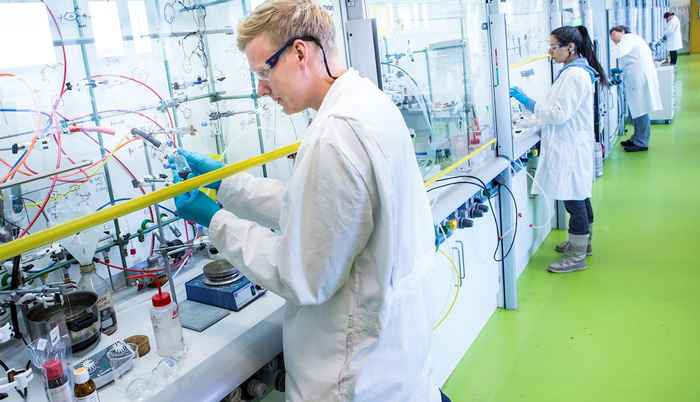HIMS researchers contribute to ‘HyCARB’ project developing sustainable carbon-based chemistry
Strengthening the link between science, industry, and the sustainability transition
18 September 2025

The chemical industry is one of the largest users of fossil raw materials such as oil and natural gas, and accounts for a significant share of global CO2 emissions. HyCARB is aimed at developing alternative, innovative chemical processes where fossil feedstocks are replaced with industrial waste gases and CO2 to produce useful chemicals using sustainable energy and hydrogen. The proposed research will focus on diverse subjects as CO2 (co-)electrolysis, integrated hydrogenation processes, and electrified high-temperature reactors. It also will develop analytical expertise and equipment, and build knowledge and experience among the next generation of scientists and engineers.
Two PhDs and two postdocs at HIMS
HyCARB is a collaboration between nine universities, five universities of applied sciences, three research institutes and thirty companies. Co-funding will provide the consortium with over €10.3 million for a total investment of €45.7 million. The consortium behind HyCARB was formed during two intensive workshops in which all parties came together to draw up a single proposal. Raveendran Shiju and Joost Reek represented HIMS, which resulted funding for two PhD students and two postdoc researchers as well as industrial support. A common thread in the projects is that they all aim to strengthen the link between science, industry, and the sustainability transition.
- A PhD student with Sonja Pullen and Joost Reek (Homogeneous, Supramolecular and Bio-inspired Catalysis group) will integrate homogeneous catalysts with gas-diffusion electrodes for the selective conversion of direct-air-captured CO2 to ethylene and formaldehyde. This will be achieved by using supramolecular interactions that control the distance between catalysts, and spatial organization of co-catalysts.
- A postdoc researcher with Stefania Grecea (Functional Materials group) will develop novel microporous adsorbents for separation and flexible buffer storage of CO2.
- A postdoctoral researcher with Amanda Garcia (Heterogenous Catalysis and Sustainable Chemistry group) will explore the production of oxalic acid from CO₂.
- A PhD student with Shiju Raveendran (Catalysis Engineering group) will develop new novel composite catalysts containing multiple functions coupled with their proximate engineering for the synthesis of methanol and dimethylether and the subsequent conversion to olefins.
See also
HyCARB: over 45 million euros for sustainable industry with green hydrogen